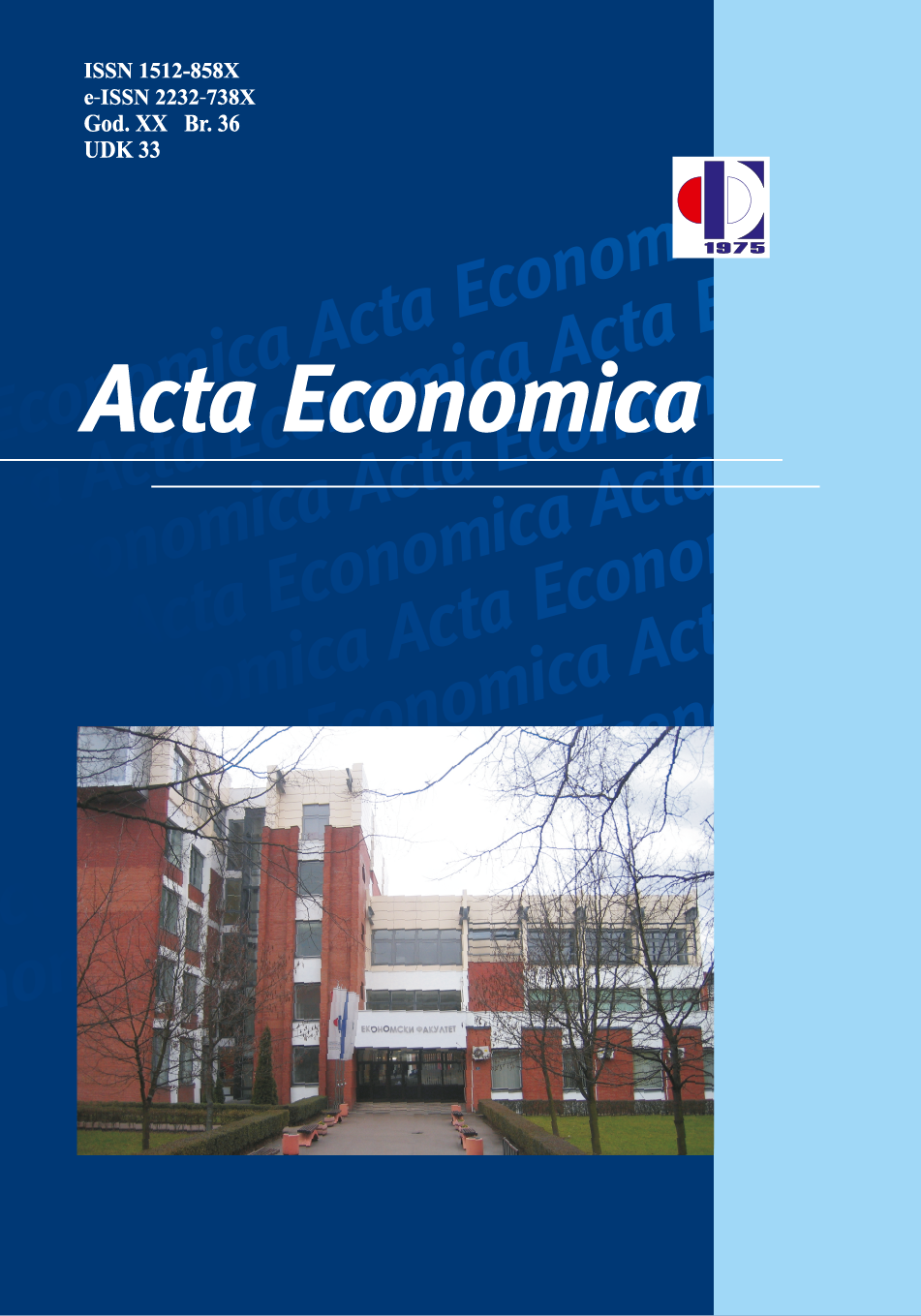MONEY SUPPLY, INFLATION AND ECONOMIC GROWTH IN BOSNIA AND HERZEGOVINA: AN EMPIRICAL ANALYSIS
DOI:
https://doi.org/10.7251/ACE2236089PAbstract
The analysis of monetary variables and their impact on the economic growth rate has always been in the focus of economic research. In the broadest sense, economic theory distinguishes two basic views defined by the views of monetarists and Keynesians. Although the basic difference is reflected in the determination of price rigidity and money neutrality, specifics of modern economic systems shift the focus towards the positive influence of monetary on real variables. The aim of our research is to identify and quantify the impact of monetary variables on economic growth in Bosnia and Herzegovina. The research was conducted using data from the period 2000-2020. The paper starts with the hypothesis that money supply and inflation ultimately have a positive impact on the real economic growth in BiH. The money supply M2 and the annual inflation rate are taken as explanatory (monetary) variables in the research, while real growth is a dependent variable. The long-term relationship between monetary variables and real growth rates was tested, taking into account the specificity of the BiH monetary arrangement established in the form of a currency board. In order to prove the hypothesis, we applied econometric techniques such as VEC model, cointegration analysis, innovation analysis based on the impulse-responsive function, decomposition variance as well as a causality test. The research results showed the connection between the money supply and the inflation rate with the economic growth in BiH, the relation being positive and statistically significant in the long run. With this, we confirmed the initial hypothesis of the work.

